Greetings from CSEAS
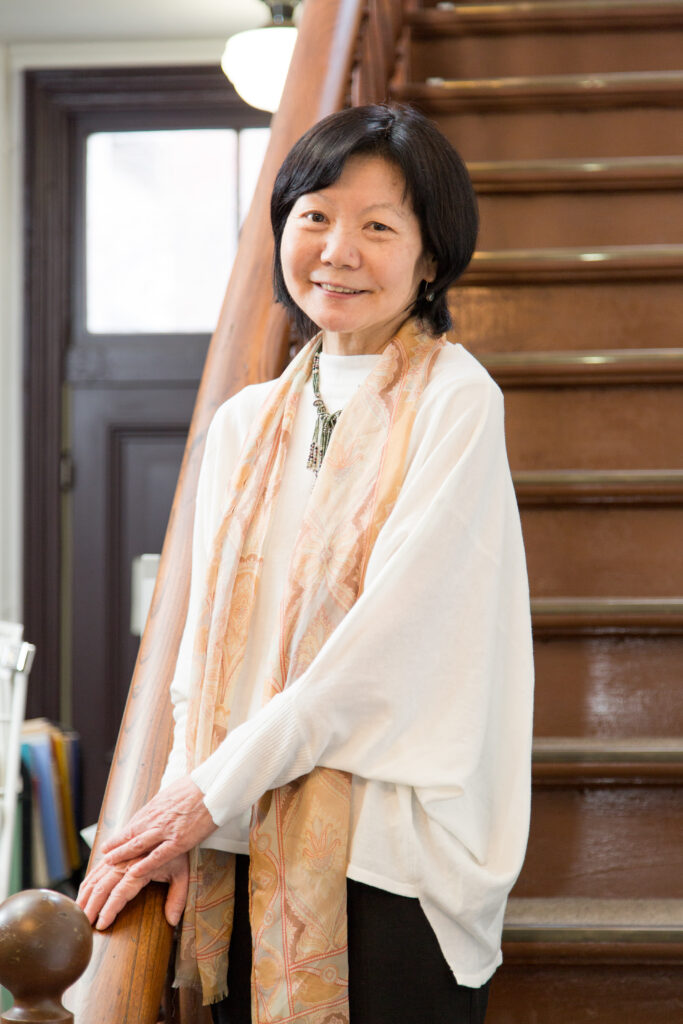
Learning from the Diversity of Southeast Asia and other Regions
On January 1, 2017, the Center for Southeast Asian Studies (CSEAS) started as a newly integrated institution, between the former Center for Southeast Asian Studies and the Center for Integrated Area Studies (CIAS). Building on the foundations of our fore-runners both in terms of knowledge and resources, we are now an institution with 35 full-time faculty, and a community of around 150 researchers and supporting staff.
In our currently fluctuating world situation, one that abounds with instabilities and contingencies, there are, on the one hand, outstanding technological developments taking place. Yet, at the same time the earth is undergoing unprecedented environmental degradation, aging populations, infectious diseases, disasters, conflicts, poverty, inequality, discrimination and so on. In the face of such complex and urgent issues, we are pressed to move beyond disciplinary boundaries and towards a more integrated and holistic approach. We aim for a comparative understanding between Southeast Asia and other regions of the world, and further reflection upon our own conditions in and involvement from Japan. We hope that this will lead us to a more nuanced field-based understanding that will enable us to propose guidelines towards providing solutions.
CSEAS comprises researchers of varied disciplines and nationalities. The humanities and social sciences are the starting point of our endeavor, to learn and study the paths that our predecessors have trodden, and to learn how in the world today we can co-exist with others and with the environment. However, in considering these and emergent issues in the region, the knowledge and methodology of the natural sciences, including the medical sciences, ecological sciences, agronomy, forest sciences etc., is indispensable. What distinguishes and characterizes our Center is that since its founding some of our core members have been scientists whose ideas have resonated with researchers in the humanities and social sciences. Together, they have jointly developed new questions and perspectives in responding to imminent issues in the field.
Here in Kyoto, we welcome researchers from within and outside the country to come and make use of our resources and join us in various research projects. Receiving such stimulus at home, then, in the field, too, we meet people with multiple perspectives and positions. Situating ourselves in a large field such as Southeast Asia with all its diversity and observing, listening, and engaging in dialogue, we seek alternatives to existing paradigms of knowledge. It is becoming increasingly important to be aware of and collaborate with different perspectives in the field, including not only locals and local researchers but also civil society members, administrators, and companies etc.
We will continue to strengthen these ties across Japan and across the world, conducting research between Kyoto and the field, with awareness of where we stand temporally and spatially and seek paths towards a world of sustainable coexistence between the natural environment and human society.
To this end, we sincerely seek your further collaboration and cooperation.
Director
HAYAMI, Yoko
50 years of history at CSEAS
Over its 55 years of existence, the Center for Southeast Asian Studies (CSEAS) at Kyoto University has confronted the challenges of exploring new horizons of area studies on Southeast Asia. Click here to read about the evolution CSEAS over the years. read more
https://history.cseas.kyoto-u.ac.jp/
Objectives
On January 1, 2017, the Center for Southeast Asian Studies (CSEAS), integrated with the Center for Information Area Studies (CIAS) to relaunch as a new Center.
During the latter half of the 20th century, human society poured great energy into advancing scientific and technological development. As a result of this the market economy has became a dominant force and brought about rapid economic growth. Yet, when we survey modern society, the impact of this growth manifests itself in a multitude of issues: from the deterioration of our global environment, the depletion of fossil resources, ongoing poverty, aging populations and declining birthrates, the recurrence of infectious diseases, ethnic and religious conflict, and the spread of terrorism. The driving forces behind these developments have come to be factors that cause the problems we face now face in the 21st century.
These are interrelated and there is a limit to the number of makeshift solutions we can provide for particular issues. To tackle these, there is an urgent need for interdisciplinary as well as integrated research approaches. Due to rapid growth globalization, we can no longer consider local communities as closed systems. Rather, we have to consider them as open and interconnected under the vagaries of our current age. There exists a strong need to create new dynamic academic institutions that go beyond the established fields of area studies and existent disciplinary frameworks. These should design guidelines for social development that meet present day challenges and solve myriad complex issues.
Aiming to do so, CSEAS currently has been reconsidering the approach of area studies whose main objective has been to understand national and regional societies in a comprehensive fashion. At present CSEAS aims to 1) strengthen commitments to those where area studies are carried out and 2) accelerate and mediate knowledge flows between them and global human society. These commitments aim to produce shared knowledge, based on the various realities encompassing interactions between these and move toward the development of a global society. For solving global issues, we also aim to strengthen interdisciplinary approaches, with the humanities and social sciences at the heart of this endeavor so as to provide diverse paths for developmental at a global level. CSEAS believes, more than ever before, that it is essential to bring together a greater diversity of knowledge through repeated discussions with researchers from an array of research fields with wide-ranging ideas and knowledge.
Our central focus is Southeast Asia but with a comparative focus on other global regions in mind. Recently, Southeast Asia has experienced rapid economic growth, and this has been through the aggressive penetration of contemporary globalization. Research at CSEAS however, has revealed that this has not necessarily happened according to so-called market principles. Southeast Asia comprises various ethnic groups, religions, cultures, and these differences can provoke conflicts. Yet, they do co-exist without decisive confrontations and demonstrate resilience in spite of frequent outbreaks of infectious diseases, pandemics and natural disasters. CSEAS believes that the realities of Southeast Asian societies will provide us with rich insights into human societies in the 21st century.
CSEAS will continue to question, shape and foster area studies. This can only happen if we are prepared to continue to foster local and global dialogues together to develop solutions to complex regional issues.
- Development of solutions to complex global issues
- Strengthening social- and humanities- centered interdisciplinary research approaches
- Enhancing understanding and appreciation of the value of diversity in human societies
Promotion of Trans-disciplinary Collaborative Research
- To form academic communities that can deal with transnational issues
- To move toward life-oriented research approaches attuned to regional diversity
- To create socially innovative approaches to the needs of the environment
- To share and use global information resources
Social Contributions
CSEAS conducts research into common social issues identified through discussions with communities and local specialists. It also disseminates knowledge gained from research through mutual exchange programs and information technology both in English and languages used in the region. Faculty from CSEAS actively give public lectures on a frequent basis to share knowledge and expertise on Southeast Asia and its relevance to Japan. Other projects, such as the Visual Documentary Project (VDP) provide a platform for young Southeast Asian filmmakers, Area Studies specialists and the general public to share and access contemporary themes and perspectives relevant to the region. Other initiatives such as the Japan-ASEAN platform for Transdiciplinary Studies to connect researchers, stakeholders and communities through programs that feedback and contribute to societies in the region.
Commitment to Education
CSEAS provides scholars and postdoctoral researchers with opportunities for interdisciplinary and international research and encourages participation in inter-regional discussion. CSEAS is also involved in several school and university educational programs and participates in English-based undergraduate teaching on campus through participation at the Institute for Liberal Arts and Sciences (ILAS). CSEAS faculty actively teach and train graduates at the Graduate School of Asian and African Area Studies (ASAFAS) maintaining a close relationship with the school providing thesis supervision and helping students prepare for entrance examinations.
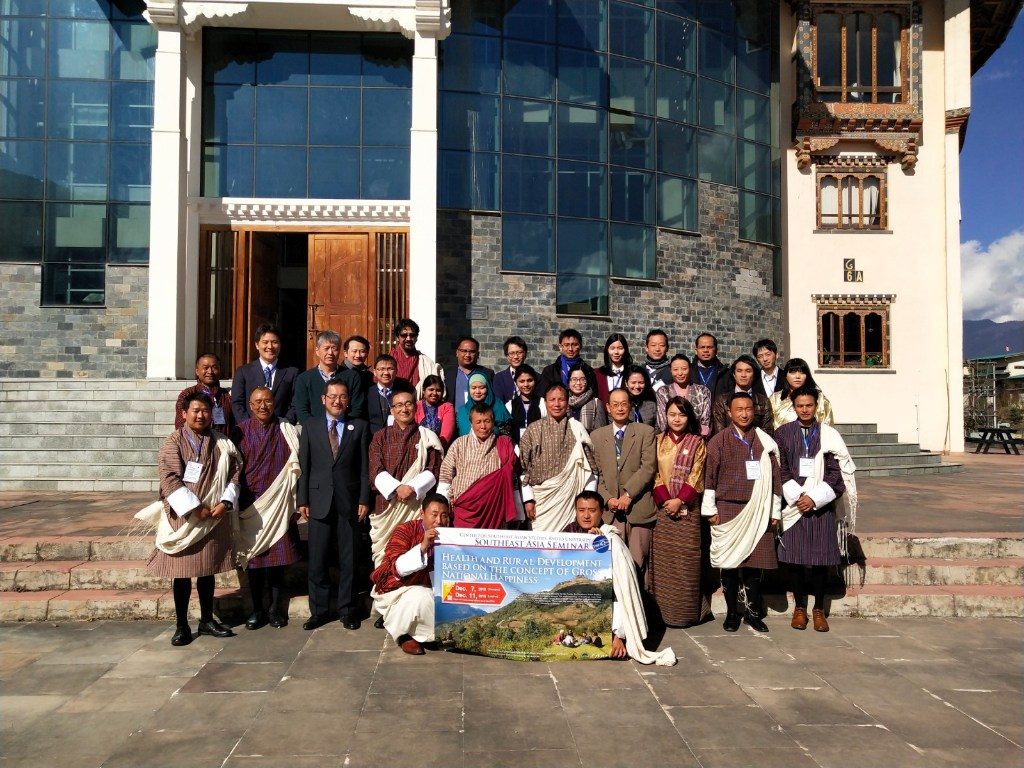
Organization
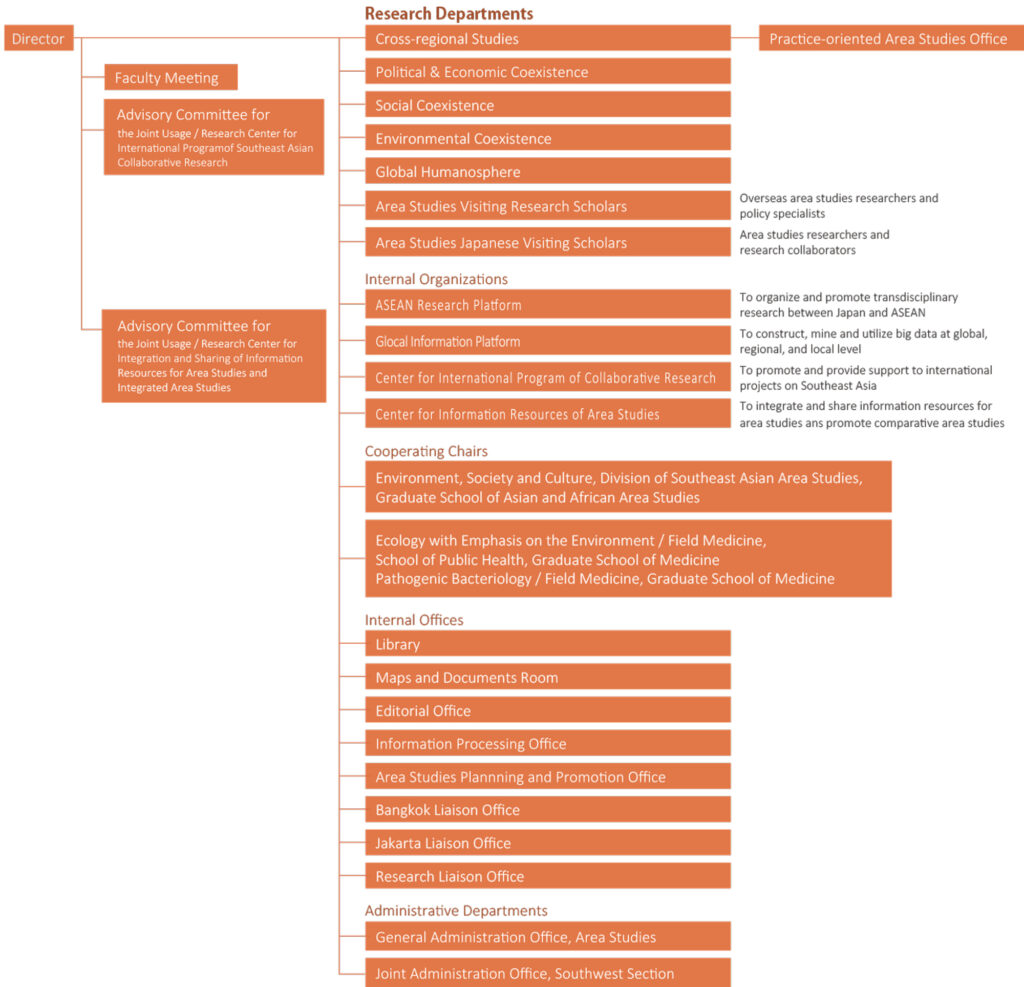
Cooperating Chairs
- Environment, Society and Culture, Division of Southeast Asian Area Studies, Graduate School of Asian and African Area Studies
- Ecology with Emphasis on the Environment / Field Medicine, School of Public Health, Graduate School of Medicine
- Pathogenic Bacteriology / Field Medicine, Graduate School of Medicine
Unit Activities
- Kyoto University Asian Studies Unit (KUASU)
- Human Security Development Educational Unit
- Global Survivability Studies (GSS Unit)
- Future Earth (Research for Global Sustainability)
- Unit for Himalayan Studies (in Japanese)
- Unit of Academic Knowledge Integration Studies
- Human-Nature Interlacement Life Science
- Research Unit for Development of Global Sustainability
- Social Science Unit for Research and Education
- Kyoto University Tropical Research & Education Unit
Japan-ASEAN Platform for Transdisciplinary Studies
- ASEAN Research Platform
- Glocal Information Platform
- Transdisciplinary Humanosphere Research
Research Divisions
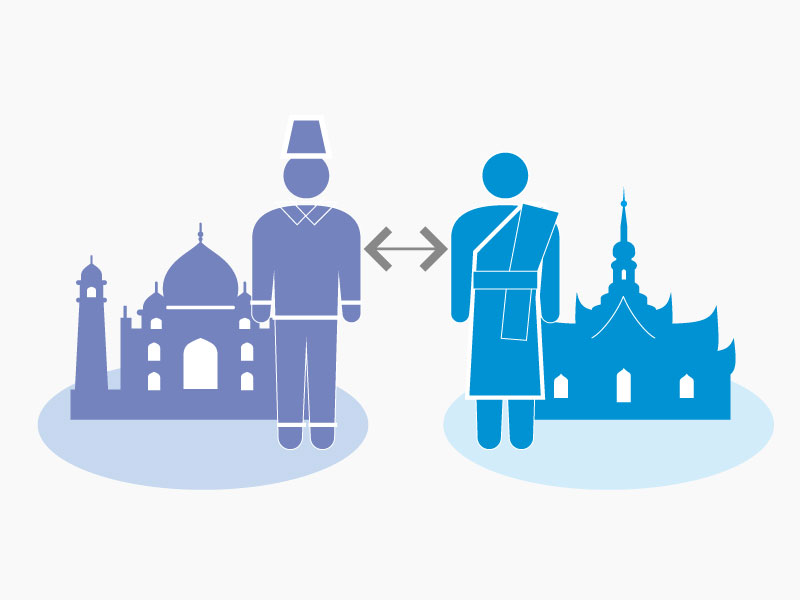
Cross-regional Studies
This division fosters area studies approaches through dynamic development of both information resources and pioneering studies at the cross-regional level. It aims to develop area studies that benefit the public sphere through basic research as well as social cooperation and practice-oriented research.
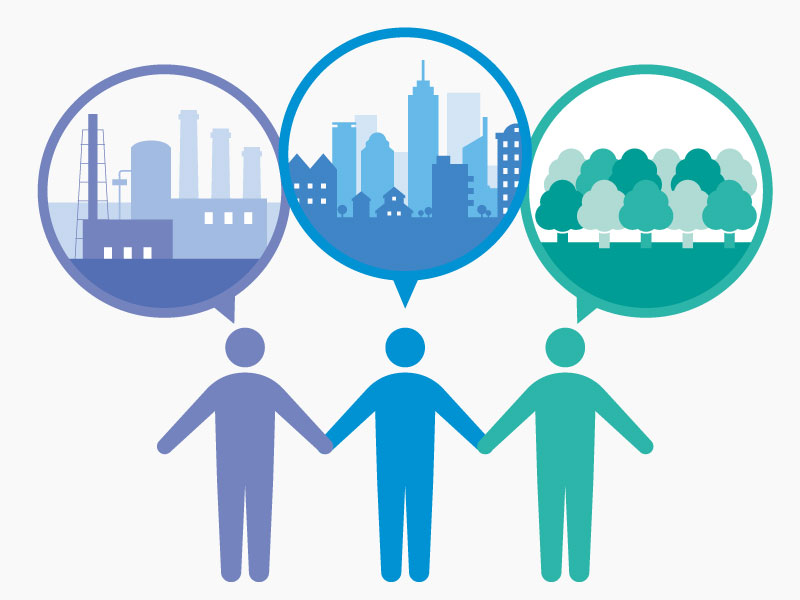
Social Coexistence
This division explores changing interactions among culture, society, and ecology in both contemporary and historical periods, aiming to advocate social coexistence among members of different societies in Southeast Asia and beyond. The division’s research covers a broad array of issues, including social, religious, and linguistic transformations; the politics of culture and knowledge production; family and gender; and sexuality.
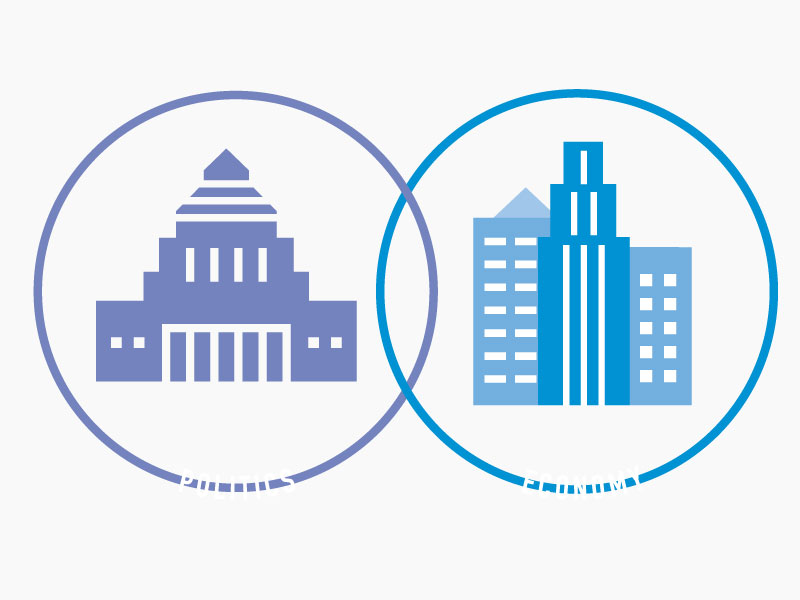
Political & Economic Coexistence
This division analyzes and develops relevant frameworks for studying and comparing dynamic political and economic transformations in Southeast Asia and beyond. Attempting both to understand the transformations and to concretely and constructively contribution to those regions, the division constantly collaborates with regional stakeholders.
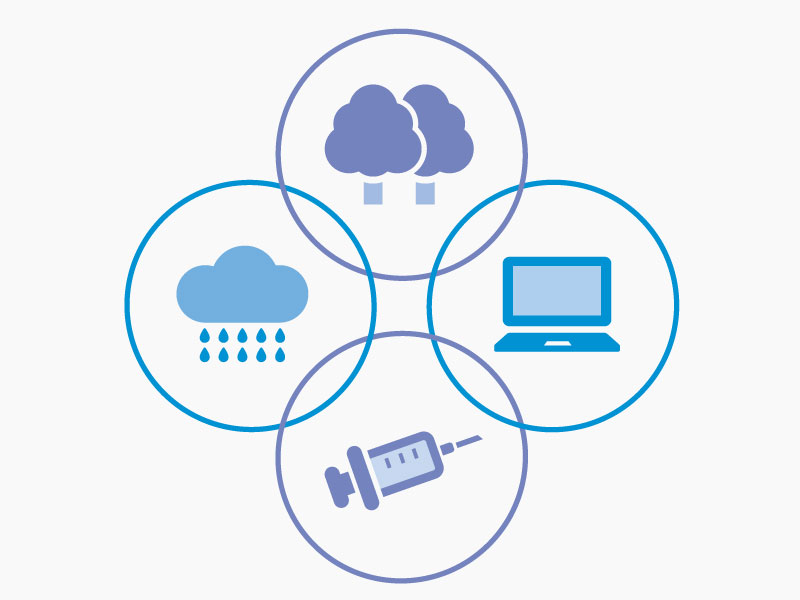
Environmental Coexistence
This division employs interdisciplinary approaches across the natural sciences, medical sciences, and informatics to study a wide variety of issues affecting the geosphere, biosphere, and human sphere. These issues include ecological wellbeing, natural resources management, human and animal health as well as diseases in Southeast Asia and beyond. The division aims to develop knowledge and theories on the long-term sustainability of human societies and human-nature coexistence.

Global Humanosphere
This division engages in critical analyses of global transformations occurring in the twenty-first century. In its research on urgent economic, political, and socio-cultural issues, the division attempts to transgress contemporary disciplinary boundaries across the social and natural sciences, and aims to find pathways toward the coexistence of both the human and non-human communities.
Bangkok Liaison Office

The Bangkok Liaison Office was established in 1964, and its present location is in the Sukhumvit area in central Bangkok. The office has now expanded from its original base of Thai studies to the broader Mainland Southeast Asian studies, reflecting the shift of research interests of CSEAS staff and scholars’ community. The office has been managed by researchers that are selected from CSEAS staff as well as from other faculties, institutions and universities in Japan. The office functions as a residence for researchers and their families stationed there. It was originally established as a research lodgings for Japanese researchers in Thailand, but it performs a variety of functions today.
The office has three major functions. First, it is a base for information collection. Very important parts of the major collections of CSEAS, such as books in vernacular languages, statistics, documents, and maps have been collected by researchers at the office. It maintains regular contact for exchanging academic information with Thai research agencies like the National Research Council of Thailand, Chulalongkorn University, Thammasat University, Kasetsart University, Chiang Mai University, Khon Kaen University, and Maha Sarakham University and so on. The office also serves as a channel for various inquiries about local institutes from Japanese and other researchers and students.
Furthermore, it operates as a publicity and networking hub and researchers stationed there often organize workshops, seminars and hold receptions for scholars in Thailand and other regions in mainland Southeast Asia. In recent years, the office has been used for assisting various kinds of publicity activities of CSEAS as well as Kyoto University. These publicity activities based in the office definitely contribute to promote the credentials of Southeast Area Studies of CSEAS.
Finally, the office provides continual logistic support to field surveys including helping in negotiation with research counterparts in Thailand and attending to emergency measures. It is also a temporary storehouse of research document and equipment. Visitors can also use the rooms, internet service, and other facilities of the office for business meetings, preliminary discussions and analysis of data.
Access
CSEAS Bangkok Liaison Office will be moving to another floor of the same building.
19D, GP Grande Tower, 55, Soi 23, Sukhumvit Rd,
Klongtoey Nua, Wattana, Bangkok, 10110 THAILAND
↓
[New Address] 12CD, GP Grande Tower, 55, Soi 23, Sukhumvit Rd,
Klongtoey Nua, Wattana, Bangkok, 10110 THAILAND
Due to the moving work, the office will be closed between 1st July 2019 and 29th July 2019.
Tel +010-66-2-664-3619
Fax +010-66-2-664-3618
From Suvarnabhumi International Airport
TAXI
Limousine taxis are available at the airport service counter while there is a metered taxi booth on the ground floor. The fare for metered taxis is around 250 Thai Baht and you are also expected to pay the highway tolls. Fares for the limousine taxis are often three times higher than the metered taxis.
Estimated Time of Travel About 1 hour
Jakarta Liaison Office

The Jakarta Residence was established in October 1970 at Jalan Rajasa, Kebayoran Baru, Jakarta, and has been funded by the Japanese government since 1973. It has three major functions: the promotion of joint research between Indonesian and Japanese or Japan-based researchers; the collection of research materials; and information and service assistance to Japanese researchers as well as Indonesian scholars.
Looking back over its history, the Jakarta Residence played quite a significant role in facilitating the 1986 Social and Economic Survey of South Sumatra by the National Institute of Economic and Social Research (LEKNAS) and CSEAS. Since then, the residence has continued to facilitate a number of research collaborations with academic institutions in Indonesia. CSEAS has signed memoranda of understanding (MOU) for research and educational collaboration with the Indonesian Institute of Science (LIPI), Hasanuddin University, Bogor Agricultural University, and the Geospatial Information Agency (BIG), Syarif Hidayatullah State Islamic University and many other institutions.
In 1983, the Center started a special project to acquire materials in vernacular languages, mainly Southeast Asian, with funding provided by the Japanese Ministry of Education, Science, and Culture. Since then, the residence has collected materials written in Indonesian, Javanese, Sundanese, and other Indonesian vernacular languages, as well as in Dutch. The residence has also amassed a growing number of documents on Indonesian statistics and maps. Through the efforts of faculty and scholars residing in Jakarta, CSEAS now has the largest collection on Indonesia in Japan
The residence also assists Japanese CSEAS researchers and other faculties, institutions, and universities to obtain research permits and has supported their research activities in Indonesia in a variety of ways. It functions as the networking hub of Japanese researchers not only in Indonesia, but also other regions in insular Southeast Asia. For Indonesian students and researchers, they can receive services and information about studying and doing research in Japan as well.
Access
Jl. Kartanegara No. 38 Kebayoran Baru, Jakarta Selatan, Jakarta 12180, INDONESIA
Tel: +62-21-7262619
Fax: +62-21-7248584
From Soekarno Hatta International Airport
TAXI
Purchase a ticket for Golden Bird Taxi at the taxi counter in the airport, and inform the person in charge of your destination.
Take the taxi at the Golden Bird taxi stop outside the airport. You might have to pay expressway tolls a couple of times on the way in addition to the taxi fare.
BUS
Take the bus bound for “BLOK M.” Get off at the last stop (“BLOK M”) and take a bajaj (three wheeler) to reach Jakarta residence.